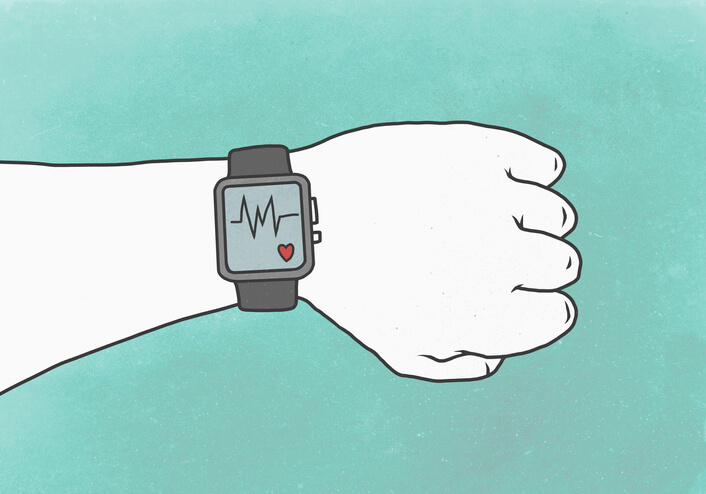It’s Time to Figure Out Your Cardiovascular Health Score
6 years ago | Heart health
By Joy Stephenson-Laws, JD, Founder
Cardiovascular disease (CVD) usually refers to various conditions affecting the heart and blood vessels, also known as the circulatory system.
According to the World Health Organization (WHO), CVDs are often called “silent killers.” This is because heart attacks and strokes are a common first warning of these diseases. CVDs are also the number one cause of death globally. In other words, more people die each year from CVDs than from any other cause.
Some common health issues that fall under the umbrella of cardiovascular disease include:
- Heart disease, one of the leading causes of death in the United States. There is also recent evidence which suggests that more young people are now having heart attacks.
- Stroke, another leading cause of death in the U.S.
- Hypertension (high blood pressure). About one of three American adults, or 75 million people, have hypertension, according to the CDC.
Clearly, we all should be proactive about these diseases. And the good news is although there may be some genetic factors that may increase our risk of CVD, there are actually many variables within our control.
Recently, a team of researchers, “including three from Penn State, studied how seven key health measures—like diet, exercise and blood pressure—were related to people's cardiovascular health over time.”
Their report discusses seven key health measures, identified by the American Heart Association, which can potentially predict our future risk of heart disease. Here they are:
Modifiable Behaviors
- Diet
- Exercise habits
- Whether you are a smoker or not
- Maintaining a healthy weight
Biometric Factors
The report identified five patterns of how well or poor people did regarding these measures over time.
“For example, people who consistently scored well in the seven metrics had a lower chance of CVD than people who did not. The researchers also found that improving these metrics over time was related to a lower risk of CVD in the future,” according to the report.
For each measure, you can be given a score of “poor,” “intermediate” or “ideal.” To give you an idea, someone who smokes regularly would be given a poor score for that particular measure, someone who has smoked within the past 12 months but not on a regular basis would be intermediate and someone who never smokes or quit smoking more than a year ago would be given an ideal score.
“Combining the score for all seven metrics—0 for poor, 1 for intermediate and 2 for ideal—results in an overall ‘cardiovascular health score.’”
The encouraging news is that if your score is not great, you have the power to improve it. Think of your cardiovascular health score similar to how you would your credit score, only even more important! Your health is your greatest wealth.
One of the lead researchers in the report stated that only about two percent of people in the United States and other countries meet all the ideal requirements for these seven factors. So we clearly have some work to do.
Another thing to keep in mind is that it appeared that one health measure was not more important than another. So not smoking is just as important as maintaining a healthy weight and vice versa. We cannot approach our health from the standpoint, for example, that it’s okay to regularly eat processed foods as long as we exercise regularly. We have to look at our health holistically and acknowledge that one good behavior may not cancel out a bad behavior.
So focus on those modifiable behaviors - diet, exercise, smoking and maintaining a healthy weight. If you eat healthily (which includes drinking alcohol in moderation if you drink alcohol), maintain a good exercise regimen, avoid smoking at all costs and avoid being obese or overweight, the more likely you are to have a healthy blood pressure, blood sugar and cholesterol level which, in turn, may lower your risk of CVD.
It’s really that simple. There is no magic formula or secret, and you don’t have to overcomplicate your health. You just have to lead a healthy life one day at a time.
At the risk of being repetitive, what we have discussed above is normally referred to as Life’s Simple 7.
- Manage Blood Pressure
- Control Cholesterol
- Reduce Blood Sugar
- Get Active
- Eat Better
- Lose Weight
- Stop Smoking
There is, however, in my opinion, one missing health measure to all of this. And that is your ability to monitor your nutrient levels while you are eating healthily and practicing Life’s Simple 7. Yes, eating healthily increases our chances of being nutritionally balanced. However, many people have difficulty absorbing nutrients from the foods they eat. This difficulty may lead to nutritional deficiencies and imbalances which may increase the risk of CVD.
For example, you need a proper balance of potassium, sodium, magnesium and calcium in order to keep your heart as healthy as possible and functioning as best as possible. And having an adequate intake of magnesium may help control your blood pressure.
As a result, I always recommend that people take routine nutrient tests in order to identify nutritional imbalances. If the test reveals a nutrient imbalance, a competent healthcare professional can work with you to make the necessary dietary changes and recommend quality supplements you can take if necessary.
What do you think your cardiovascular health score is? What can you do to improve it? Please join the conversation.
Enjoy your healthy life!
The pH professional health care team includes recognized experts from a variety of health care and related disciplines, including physicians, attorneys, nutritionists, nurses and certified fitness instructors. This team also includes the members of the pH Medical Advisory Board, which constantly monitors all pH programs, products and services. To learn more about the pH Medical Advisory Board, click here.







